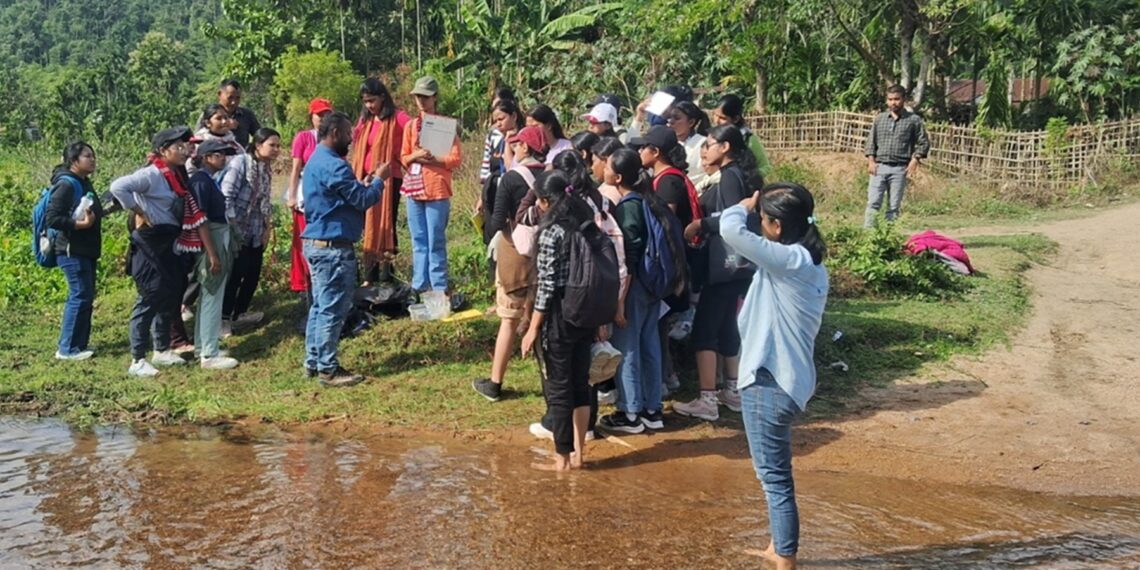GUWAHATI: A group of enthusiastic students from Devi Charan Baruah (DCB) Girls’ College, Jorhat, recently undertook a three-day “Journey For Learning” (J4L) expedition to explore the Kohora River Basin.
The expedition unfolded at the Community Resource Centre in Chandrasing Rongpi Village, Kohora, Karbi Anglong, where the 5th-semester students of the Department of Geography experienced experiential learning, focused on disaster risk and management.
Organised under the Community-Based Natural Resources Management (CBNRM) initiative of Aaranyak, a biodiversity conservation organisation, the students engaged in a comprehensive study of the traditional village landscape, viewing it through the lens of disaster risk and management.
The curriculum aimed at instilling a deeper understanding of the requirements in social capacities in a cultural landscape for effective disaster risk mitigation.
The first day commenced with an orientation session led by Dr Jayanta Kumar Sarma, the Academic Coordinator of J4L.
Emphasising the analytical skills inherent in geography, he highlighted the connection Geography has with leisure activities, folk culture, and traditional food.
The students then embarked on a village walk, dividing into teams to explore two villages, focusing on understanding their landscapes concerning disaster risk.
Guided by Sarlongjon Teron, Senior Project Officer at Aaranyak, the students interacted with villagers, gaining insights into the local perspective.
Day one concluded with a group discussion on the Kohora River Basin, particularly about the place and people, with a special emphasis on disaster risk.
On the second day, students delved into practical applications of GPS and GIS under the guidance of Aaranyak’s Researcher Sourav Gupta.
Divided into groups, they used GPS for water discharge and quality assessment, followed by focused group discussions with villagers.
The day concluded with a session on disaster memory and experiences, setting the stage for a scientific report assignment.
The third day involved a participatory rural appraisal (PRA) with village communities. In it the students engaged in discussions, interacted with villagers, and created thematic maps reflecting their observations on natural and man-made disasters.
The day concluded with a quiz, a feedback session, and expressions of interest from DCB College faculty for future collaborations.
The J4L initiative by Aaranyak under its Natural Resource Management Programme (NRMP), seeks to integrate cultural and natural tourism with science-based learning.
The biodiversity conservation organisation played a pivotal role in subsidising fees and fully sponsoring two students from the lot, ensuring inclusivity and participation in the programme.















